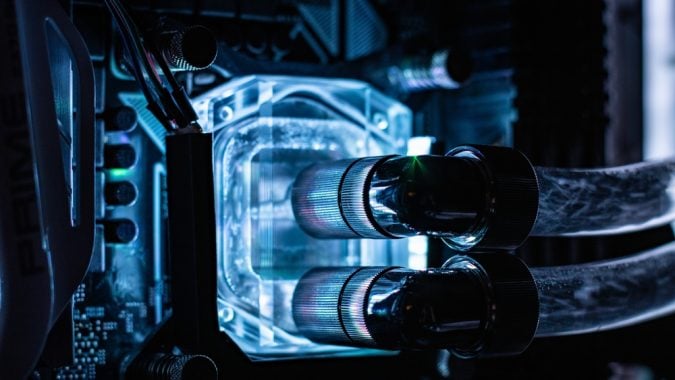1 min read
Unlocking the Future of AI Cooling: Two-Phase, Direct-to-Chip Liquid Cooling
As AI superchips push the boundaries of power and performance, the heat they generate is becoming a critical challenge for data centers. With...
1 min read
 Shahar Belkin
:
Jul 17, 2025 5:17:30 AM
Shahar Belkin
:
Jul 17, 2025 5:17:30 AM

The data center industry is evolving rapidly, and liquid cooling is at the forefront of this transformation. With processors becoming more powerful and rack densities increasing, traditional air-based cooling solutions are no longer sufficient. Liquid cooling has emerged as the answer, and its adoption is expected to grow from less than 1% of data centers today to nearly 30% in the next two years.
But with multiple liquid cooling technologies available, how do you determine which one is the best fit for your needs?
In a recent article published on HPC Wire, we explore the two main categories of liquid cooling—immersion and direct-to-chip—and their single-phase and two-phase variations. The article provides a detailed breakdown of the benefits and challenges of each approach, helping data center operators, AI factories, and hyperscalers make informed decisions.
Key insights include:
As the liquid cooling market is projected to grow from $5.65 billion in 2024 to $48.42 billion by 2034, understanding these technologies is essential for staying ahead in the industry.
Read the full article on HPC Wire to learn more about how liquid cooling is shaping the future of data center infrastructure.
To learn more about how HyperCool can transform your data center, download our eBook.
Immersion cooling submerges the entire server in a dielectric fluid, while direct-to-chip cooling removes heat with cold plates attached to fluid lines and mounted directly on processors. Direct-to-chip systems use less fluid, which makes them easier to maintain and integrate into existing data centers.
Single-phase systems rely on liquid absorbing heat without changing state, then returning to a cooling unit. Two-phase systems use a boiling and condensation process that offers better heat transfer efficiency and support for higher power densities in AI and HPC workloads.
You’ll want to think carefully about a combination of factors, including: thermal performance, energy efficiency, compatibility with existing infrastructure, maintenance complexity, environmental impact, and total cost of ownership. The right choice depends on your data center’s power density and scale as well as long-term sustainability goals.

1 min read
As AI superchips push the boundaries of power and performance, the heat they generate is becoming a critical challenge for data centers. With...

2 min read
“GenAI is the new engine that will fire investments to edge data centres.”— Rajiv Ranjan, IDC India As India experiences explosive demand for AI...

3 min read
As high-performance computing (HPC), artificial intelligence (AI), and machine learning (ML) workloads continue to drive up power densities in modern...